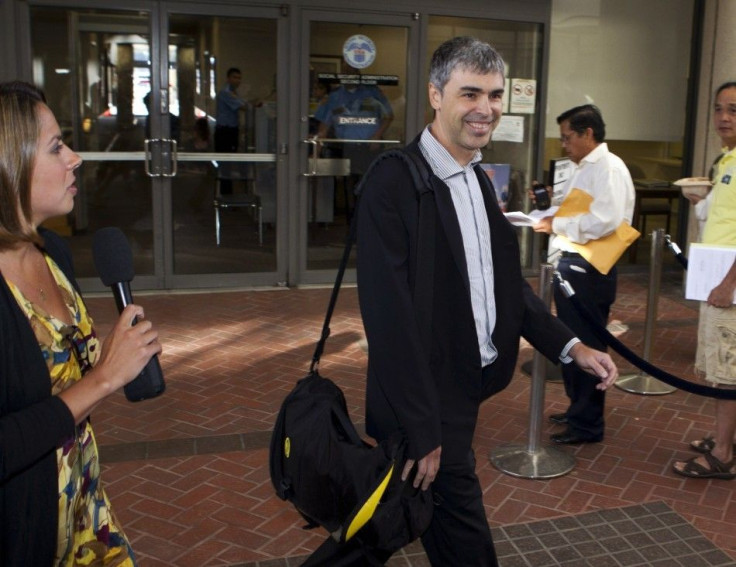Spain's 'Google Tax' Law A Reaction To Silicon Valley's International Tax Evasion

Spain has passed a new law requiring websites that link to news stories first published by the Spanish newspaper association to pay a tax for that hyperlink, a law that targets Google (NASDAQ:GOOG) and other Internet newsfeeds that feature journalism that originates elsewhere and make it available to a wider audience.
The controversial law (officially known as Canon AEDE) has already been nicknamed the “Google Tax,” with the law asserting that news editors have an “inalienable right” to levy a fee on the link, a politicized way of saying publishers can’t opt out of the law if they so choose. Sites that post a hyperlink must pay a fee for “listing a link and a meaningful description” of the article to which they’re referring.
It’s unclear, though, how the Spanish government defines “meaningful description” and how much the tax will actually be (the fine for violating the law could be as high as 300,000 euros or $403,053, but one Spanish study estimated firms could eventually expect to pay millions of euros depending on the circumstances).
This law comes more than a year after Germany passed a similar bill that required Google to compensate smaller outlets for links. The company was able to avoid paying the tax, though, when an amendment was passed in the German parliament approved an amendment to the bill that permitted Google to post a story’s headline, without any caption or summary below, for free. Google has also refused to list links without the fee first being waived.
Sixteen professors affiliated with Germany’s Max Planck Institute warned at the time that alienating Google News and other vast news feeds would have “unforeseeable negative consequences.”
“Without content the search engines would find nothing -- and without search engines nothing would be found amongst the indeterminable mass of information on the Internet,” Deutsche Welle quoted the letter to parliament as saying.
Quartz, which has chronicled the rise of the Spanish law since it was introduced in February, reported social media sites like Twitter (NASDAQ:TWTR) and Facebook (NASDAQ:FB) will be exempt from the rule, an indication social media will likely become even more influential for Spanish news outlets that need Web traffic to survive.
Perhaps it’s not a surprise, then, a Spanish-language blog has dubbed the legislation “the most infamous law in the history of the Internet.” The mere notion has rankled Internet freedom advocates and journalism observers, with new media heavyweights like Reddit, Drudge Report and dozens of the most-viewed sites online relying almost entirely on links for their content.
Using the argument a tax on hyperlinking is an unnecessary clampdown on Internet freedom helps Google portray itself in a positive light, a position boosted by the threat the Mountain View, California, company will have no choice but to end its Google News service in Spain entirely. Yet the ongoing conversation also reminds Internet users about something the company would rather keep quiet: Google, like other Silicon Valley giants, pays virtually no taxes.
The U.S. Senate and European Union lawmakers have grown increasingly annoyed with Google, Twitter, Facebook and Apple (NASDAQ:AAPL) for setting up international subsidiaries, where tax rates are much lower, through which they funnel their profits. Google, for instance, has an Irish subsidiary that avoids paying taxes in Ireland by operating out of Bermuda, which has no corporate income tax. The company has been questioned multiple times by the British parliament and has spent years entangled with French authorities over an unpaid $1 billion tax bill.
These tactics, experts told Bloomberg, are costing the U.S. and Europe at least $100 billion in revenue each year, with Spain’s Canon AEDE law proof of that frustration.
“Over the decades, Congress and government around the world have allowed a system to develop which allows multinational companies to earn income tax-free by using contracts to shift the income, on paper, to companies in low- and zero-tax countries,” said Michelle Durst of Washington, a retired international tax attorney, adding the results are “eroding public confidence in the fairness of our tax systems in the United States and around the world.”
© Copyright IBTimes 2024. All rights reserved.











